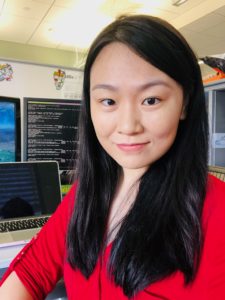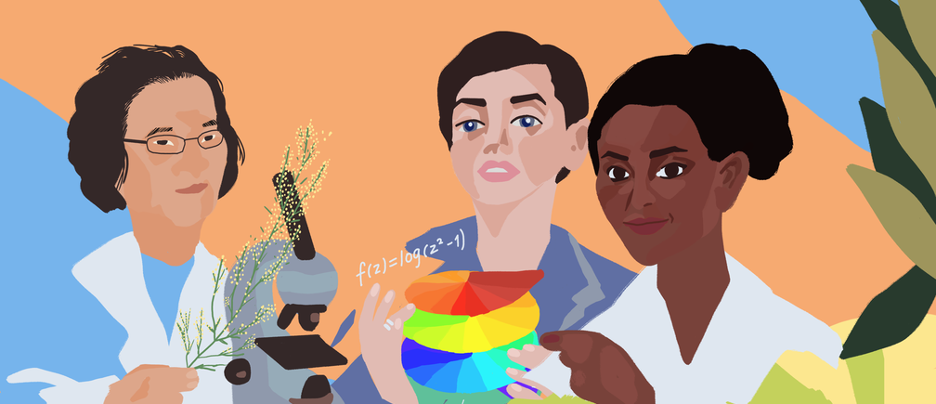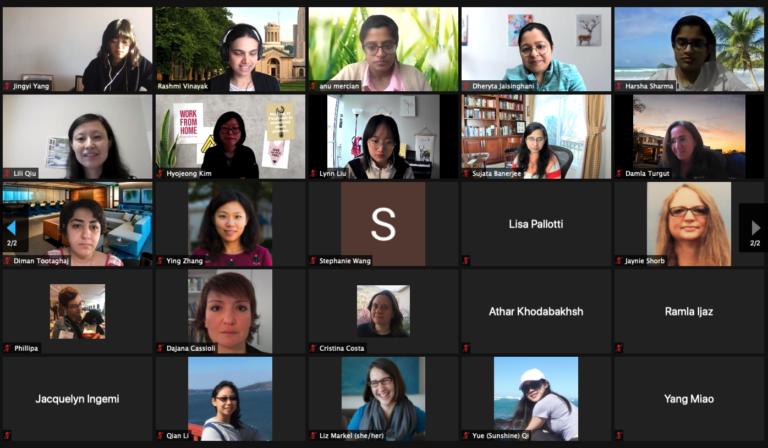In this blog, Mei Wang, who is currently a fifth-year Ph.D. candidate in the Computer Science Department at the University of Texas at Austin, will share her experience organizing an n2women event and what we can get from attending a conference for women in STEM.

Mei received B.S.E. degrees in both Electronic Engineering and Computer Science from Shanghai Jiao Tong University in 2016. Her current research interests include wireless sensing, mobile computing, and deep learning, especially for temporal and spatial sequential data analysis with application to positioning and tracking. She has published papers in top conferences and journals like Infocom, Mobicom, MobiSys, NSDI, and TMC and gets the Best Paper Award in ACM MobiSys 2018. Recently she got the N2 Women Young Researcher Fellowship and organized an N2 Women social event at NSDI 2021.
Let’s hear Mei’s personal experiences, concerns, and suggestions on this.
Challenges and Opportunities for Women in STEM
Will I be wrong if I say women are a “considered” minor group in STEM, especially in graduate schools? Besides heavy coursework and research work, we sometimes need to combat gender bias and handle friendships with classmates or labmates. For Ph.D. students, we even have a destined long and lonely journey to explore the world of science. Not only physical health, but mental health is also a cornerstone in our way forward. Frankly, there is no essential difference between women and men in STEM, and women have particular advantages in certain aspects. Lots of women in STEM have successfully made a significant contribution to the whole world. Everyone will prove themself when he/she handle more responsibility and deserve trust. Furthermore, there are also many organizations and events for connecting and helping women technologists.

Events for Women in STEM
Each year, there are many events for women in STEM. Grace Hopper Celebration (GHC) is the world’s largest gathering of women technologists. Learn, network, and be inspired as we work together to achieve intersectional gender and pay parity in tech. For graduate women students, Grad Cohort Workshop for Women (CRA-W) aims to increase the ranks of senior women in computing-related studies and research by building and mentoring nationwide communities of women through their graduate studies. Students can build mentoring relationships and develop peer networks that will form the basis for ongoing activities during their graduate careers. And we also have women organizations in each specific domain. For example, for the networking area, Networking Networking Women (N2Women) is a discipline-specific community of researchers in the fields of networking and communications. N2Women encourages diversity and aims at fostering connections among under-represented women in this computing sub-field. Last but not least, we can also participate in the activities of women student organizations in our own department/school.

Experience of Organizing an Event
As N2 Women Fellow at NSDI 2021, I organized an N2 Women event at NSDI 2021 this April. Due to the impact of the COVID-19 pandemic, it was a virtual online event with less than two weeks of preparation in hands. Before the event, we sent more than one hundred emails to discuss the event’s structure with mentors, coordinate time and location with USENIX conference organizers and sponsors, invite potential panelists, make a nice-looking flyer, advertise the meeting to committee members and conference attendees, etc. Each step has many points for attention. For example, it’d be better to avoid conflict with other sponsor events when selecting the event time. To determine the event topic, we should go over the topics of the past events and make a consistent but not repeated one. The most time-consuming or difficult part is to invite senior panelists at short notice. It helps to make a list for all potential invitees with priority and send out the invitation letters group by group. During the event, time management is crucial. As the panel moderator, I need to bridge the conversations to pre-asked questions and leave time for Q&A for all attendees. Such experience helped me improve my communication and organizational abilities and build connections with senior professionals from academia and industry.

Be Strong, Extroverted, and Confident
Seeing such successful women full of enthusiasm in the event, we can get so much self-power from their mental attitude and inspirational words. To conclude, we should improve and prove ourselves first. Work hard to get along with everyone and learn how to play nice with others. Not only the good work, but personality also always play a bit role. It seems that the extroverted personality is favored. Extroverted and outgoing personality helps us typically in achieving leadership in both academic and industry career life.

Most importantly, confidence isn’t just necessary for young women researchers but also a valuable attribute to develop. Women tend to be less confident in their abilities than men. Self-confidence starts with practice; practice relentlessly, and that will get paid off well eventually. Keep going, and remember, there will always be many friendly people willing to help.
**Statements and opinions given in this blog are the expressions of the contributor(s). Responsibility for the content of published articles rests upon the contributor(s), not on the IEEE Communication Society or the IEEE Communications Society Young Professionals.
